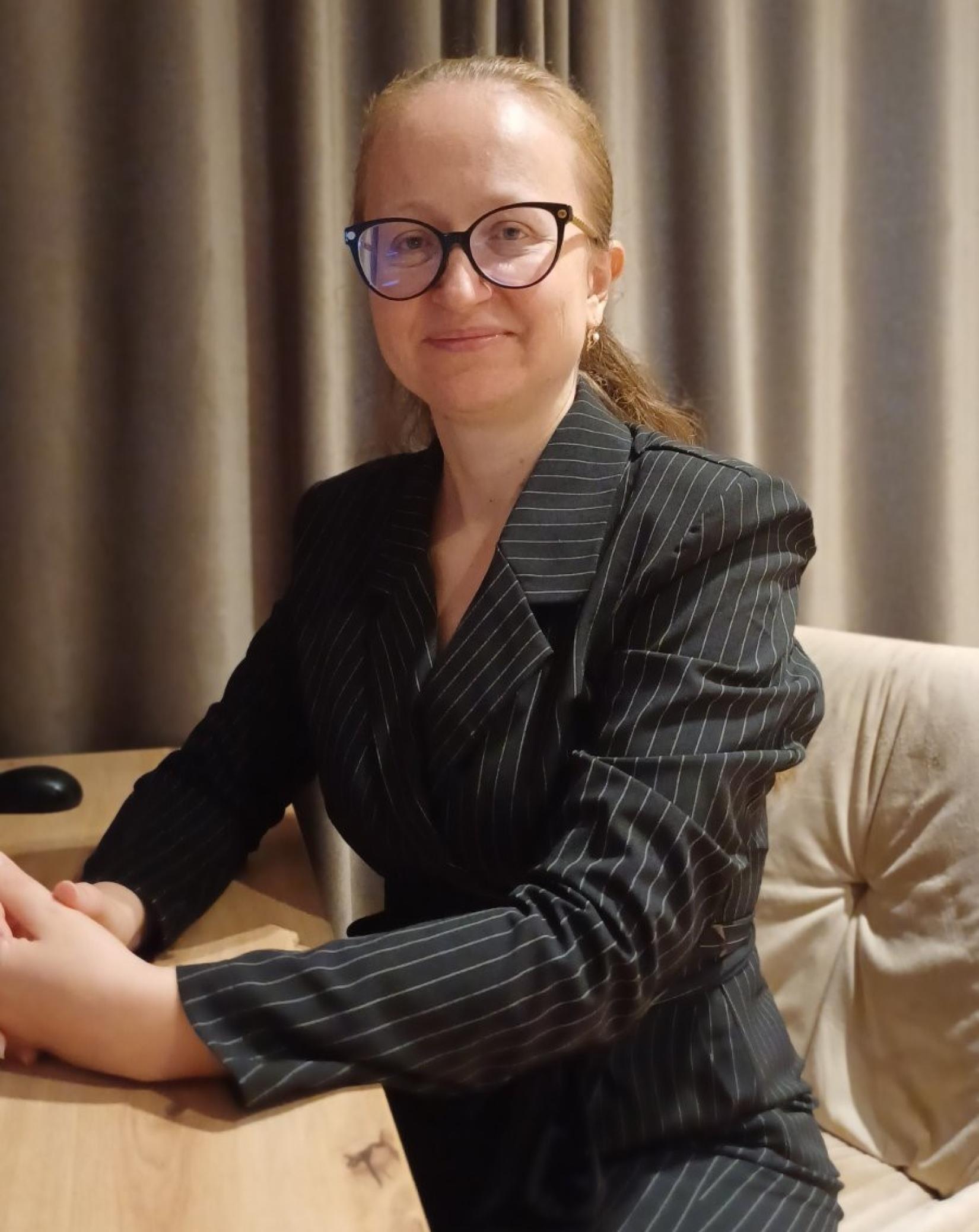Natalia Conovca: There are no “special” employees, there are professionals

Natalia Conovca is 43 years old, she is a mother and an entrepreneur.
She has been managing a translation company in Chisinau for 21 years. She is an empathetic person with a lot of tact in relations with people, while the team she coordinates is a beautiful example of social inclusion.
She studied international economic relations, being passionate about mathematics and foreign languages. After graduating from the university she opened a translation company together with her husband.
“The company is our third child (she smiles). It is 21 years old. At first, we only provided written translation services, then we also started covering event interpretation. We translate into and from Romanian, Russian, English, and lately Ukrainian, because there is demand.”
Today, the company staff is represented by 33 employees, among which two persons with disabilities, thus being an admirable model of an inclusive team.
“My civic stance, but also from an employer's perspective, is that each one of may succeed in his/her work as it may very well fail with it. For example, if I cannot translate into Russian, it is a challenge in my field of work. Having this conviction, I have looked for professionals in the first place for my team and I do not consider that these two colleagues are “special” or any different from the others in the company. There was no need to adapt any of our internal processes just because they joined. They are passionate about what they do, responsible, very communicative, and professional in relations with clients. This was my focus of interest in the job interviews and I am glad that Andrei and Vladislav are part of the team”, states Natalia.

Vladislav is a translator. He graduated from the Faculty of Foreign Languages with the specialization “Foreign Languages for Diplomatic Corps”. He has been working in Natalia's company since 2019. “I remember that five years ago, when I hired Vladislav, it was from his papers that I realized he would have a disability. He sent his CV, came for the interview, and passed a regular recruitment process. He did not ask for any facilities and demonstrated the knowledge and skills he had at that time”, mentions Natalia.
Andrei, another office employee, has a physical disability. Like Vladislav, he joined the team five years ago. His studies are in other fields than translation, but he is convinced now that this job best suits his passion and abilities.
“I graduated from the College of Viticulture and Winemaking, and later the Faculty of Law. That was what my parents wanted, although I always liked computer science and everything related to new technologies”, recounts Andrei smiling. “I did not get here by recommendation. The company was looking for staff and Mrs. Conovca knew me from the Association of Professional Translators, I came for the interview and stayed”, he continues enthusiastically.
If initially Andrei was more involved in client relations, later he became a translation technician. “I know for sure that he is one of the most sought-after professionals in his field”, states Natalia proudly.
“When I was a student, it used to be much more complicated than now in employment”, tells Andrei with emotion. “They would humiliate me, I had the impression that people in the street were staring at me, they seemed to be scared away.”
Andrei encourages people with disabilities to bring out what they are best at when talking to an employer: “And for employers, as well as for people who are looking for a job, I have the same advice: do not focus on disability, emphasize abilities first!”
To the question “Is our society inclusive?”, both Natalia and Andrei believe there is room for improvement. If things have changed significantly at the attitude level, great efforts are still required in terms of infrastructure.
According to the labor force survey data, the participation rate of persons with disabilities in the labor force in 2023 was 17%, which is three times lower than that of persons without disabilities.
***
This story is part of the UN Moldova awareness raising campaign ”Stand for Inclusion of Persons with Disabilities – No One Must Be Left Behind." An initiative that is part of the UN ongoing efforts to promote the inclusive and meaningful participation of persons with disabilities in all their diversity in decision-making processes at all levels.
The story was developed with the financial support of the UN Human Rights Moldova within the project "Paradigm Shift to Disability Inclusive Services, Accountability and Governance in Moldova", implemented by UN Human Rights Moldova, UNDP Moldova, and UNICEF Moldova funded by to the United Nations Partnership for the Rights of Persons with Disabilities (UNPRPD). The views expressed in the paper do not necessarily reflect the official opinion of the UN Human Rights or the UNPRPD.




